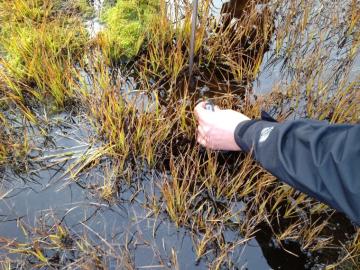
Filter News
Area of Research
News Type
News Topics
- (-) Environment (3)
- 3-D Printing/Advanced Manufacturing (5)
- Advanced Reactors (1)
- Artificial Intelligence (1)
- Big Data (1)
- Bioenergy (2)
- Biology (1)
- Biomedical (4)
- Clean Water (1)
- Climate Change (1)
- Composites (3)
- Computer Science (14)
- Critical Materials (1)
- Cybersecurity (3)
- Energy Storage (2)
- Fusion (4)
- Grid (3)
- Isotopes (6)
- Materials Science (10)
- Mercury (1)
- Microscopy (5)
- Molten Salt (4)
- Nanotechnology (9)
- Neutron Science (8)
- Nuclear Energy (10)
- Physics (9)
- Polymers (5)
- Quantum Science (3)
- Security (7)
- Space Exploration (2)
- Summit (2)
- Transportation (7)
Media Contacts
Scientists studying a valuable, but vulnerable, species of poplar have identified the genetic mechanism responsible for the species’ inability to resist a pervasive and deadly disease. Their finding, published in the Proceedings of the National Academy of Sciences, could lead to more successful hybrid poplar varieties for increased biofuels and forestry production and protect native trees against infection.

Biologists from Oak Ridge National Laboratory and the Smithsonian Environmental Research Center have confirmed that microorganisms called methanogens can transform mercury into the neurotoxin methylmercury with varying efficiency across species.

A team led by Oak Ridge National Laboratory has discovered that residents living in arid environments share a desire for water security, which can ultimately benefit entire neighborhoods. Las Vegas, Nevada’s water utility was the first utility in the United States to implement ...


